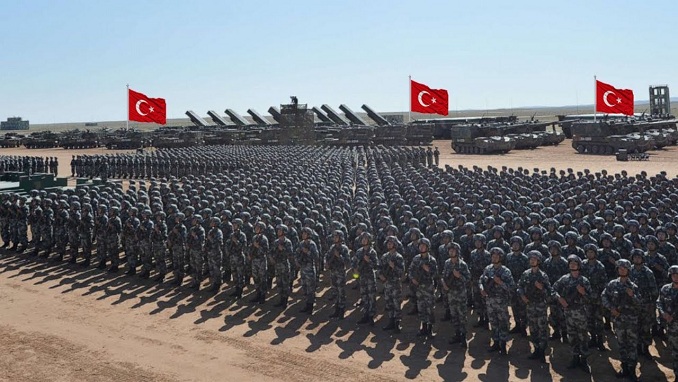The fragile ties between Damascus and the Kurdish-led autonomous administration in northern Syria have seen a dangerous escalation amid widespread anticipation that US support for the Syrian Kurds will grow after the change of guard at the White House. The two sides have sought to besiege one another in several areas in recent weeks, fueling deadly tensions and allegations of collusion between Damascus and Ankara, Al-Monitor writes.
In early January, government forces restricted the entry of commercial vehicles to Aleppo’s predominantly Kurdish neighborhoods of Sheikh Maqsoud and Ashrafiya as well as the nearby town of Tell Rifat and its environs, an area the Kurds call Shahba, Kurdish sources told Al-Monitor. The restrictions disrupted the supply of fuel and food, also affecting camps sheltering Kurdish refugees from Turkish-held Afrin.
The Kurds retaliated by encircling government-controlled pockets in Hasakah and Qamishli to the east. Mazlum Kobane, the head of the Kurdish-led Syrian Democratic Forces (SDF), accused government forces of blockading Kurdish-populated areas and arresting relatives of members of the SDF and the Kurdish police force Asayish. The Aleppo governor’s office rejected the accusations and denied shortages of basic goods in Kurdish areas.
On Jan. 27, one person was killed and several others injured as Kurdish security forces intervened to break up a pro-government protest in Hasakah. A pro-government militia responded by attacking an Asayish station amid mutual recriminations on who was responsible for the unrest.
Kurdish sources told Al-Monitor that the Russians did little to mediate in the crisis and declined to provide a security guarantee to a delegation the Kurds wanted to send to Damascus. Nevertheless, contacts took place locally and the Asayish began to remove roadblocks Feb. 2 as a goodwill gesture, they added. However, both sides preserve their military postures and the crisis has yet to be fully resolved, the sources said.
Sources in Damascus, meanwhile, said the Kurds promised to retreat within 48 hours during contacts Feb. 2. According to independent sources, they did lift the blockade in Hasakah and Qamishli that day, while the government allowed trucks carrying fuel and food to enter the two Aleppo neighborhoods and Shahba and a Russian-Syrian delegation inspected the situation in Aleppo.
A compromise may have been reached for now, but score-settling in mixed Kurdish-Arab areas could rekindle any time in the absence of dialogue on a constitutional status for the Kurds.
In Kurdish-held Qamishli, the Syrian army’s control is limited to the airport, an area housing public buildings, a road connecting that area to the airport and the border crossing with Turkey. Similarly, Kurdish forces control most of Hasakah, with government forces confined to an area housing security offices and public buildings.
The Kurds have attributed the blockade in Aleppo to a secret deal between Ankara and Damascus after an alleged visit by Turkey’s intelligence chief Hakan Fidan to the Syrian capital. “The two sides discussed many things, including joint plans against the autonomous administration,” said Bedran Chiya Kurd, a senior official in the autonomous administration. Another top Kurdish figure, Ilham Ahmed, said security cooperation between Damascus and Ankara would not be surprising.
